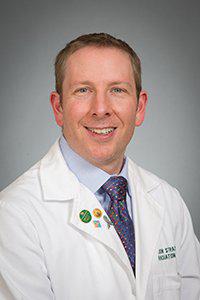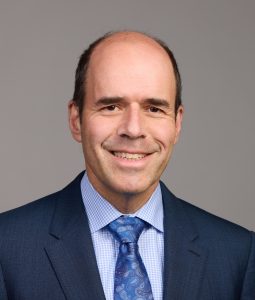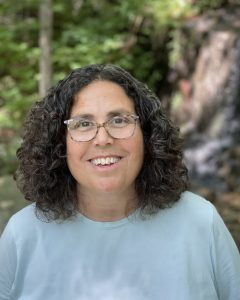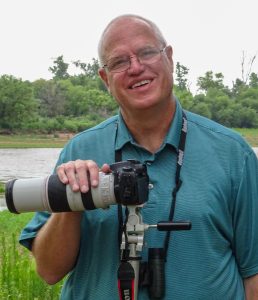ABR volunteer Jon Strasser, MD, has advice for anyone who wants to improve how the organization measures candidate and diplomate knowledge: Apply to join a committee and help shape the ABR’s future.
“It’s always better to be a participant than a nonparticipant, and it’s very easy to get involved,” he said. “The ABR is always looking for people. There’s a role, whether you’re a community or academic doctor.”

Dr. Strasser, the incoming chair of the Radiation Oncology Qualifying Exam Thoracic Committee, has been an ABR volunteer for five years. His committee works on computer-based exams, so Dr. Strasser’s contributions include writing and reviewing questions.
He said the impetus for becoming a volunteer was improving the candidate experience.
“Somebody had suggested that I apply, and I thought that it seemed interesting,” he said. “I thought that working on the board certification process could be really meaningful. I hope that I’m helping to at least make the exam fair. I don’t like questions that ask percentages or minutae, but rather concepts that demonstrate a knowledge base.
Writing relevant questions is a challenge no matter how long a volunteer has been on a committee. Dr. Strasser said he constantly strives to improve his craft and ensure that the exam is a fair measurement of candidate knowledge.
“It’s been a very humbling experience sitting down and writing 10 questions a year,” he said. “You go through a lot of thought about how to test certain concepts and which are relevant for someone who’s practicing. You then try to figure out how to put that into a question.”
Kenneth Rosenzweig, MD, the thoracic committee’s current chair and a new member of the ABR Board of Trustees, said Dr. Strasser has been a valuable participant during meetings, whether in person or on virtual calls.
“Jon brings tremendous energy and commitment to his role as a question writer for the RO (Qualifying) Exam,” Dr. Rosenzweig said. “He provides excellent feedback to his colleagues on the committee to help them improve their work and provide a fair and equitable exam. He also has a wonderful sense of humor that helps make our long meetings more enjoyable.”
Dr. Strasser is an attending radiation oncologist and medical director of pediatric radiation oncology at ChristianaCare Health System in Newark, Delaware. He’s also an attending radiation oncologist at A.I. DuPont Hospital for Children in Wilmington, Delaware.
A nonprofit system, Christiana serves several small- and mid-sized communities in Delaware, Maryland, and Pennsylvania. Dr. Strasser said his work there is a good blend of the academic and private sides of radiation oncology.
“I’m lucky that I have a great group of partners,” Dr. Strasser said. “We like to consider ourselves a pracademic practice (a mixture of private and academic work). We publish, we read, we have journal clubs, we talk about things. All those activities help make sure that I’m up to date.”
Dr. Strasser and the ABR know the importance of having volunteers from the academic and private practice communities. His experience on both sides gives him a broad perspective that helps when writing questions.
“I think our specialty is diverse, and I think what a community practice does versus an academic one is incredibly different,” he said. “When it comes to talking about board certification and Continuing Certification, we want to make sure that the people involved in the process are diverse and representative of that broad community.”
Working on an ABR committee has given Dr. Strasser a voice in the way his specialty’s exam is constructed. While he and his colleagues work within established psychometric boundaries, they are the ones deciding which questions are most appropriate for their audience. He’s seen how working directly with the ABR can make an impact.
“I think they’ve been receptive,” Dr. Strasser said. “Obviously, there’s a blueprint of how the exams must be written, and there are a lot of standards. But I think as we’ve talked about things that need to be covered, we bumped those items up to the Board of Trustees and those things ultimately get discussed and we get feedback. I think the ABR is definitely listening. They are willing to come to the table and make changes.”
ABR volunteer and radiation oncologist Kenneth Rosenzweig, MD, has been named to the organization’s Board of Trustees (BOT). Dr. Rosenzweig will start at the end of the fall board meeting in late September.

Dr. Rosenzweig is chair of the department of radiation oncology at Mount Sinai Health System and a professor in the department of radiation oncology at the Icahn School of Medicine at Mount Sinai in New York.
Dr. Rosenzweig earned his board certification in 1997 and has been an ABR volunteer since 2002, serving in multiple roles, including question writer and oral examiner. He most recently served as chair of the lung/sarcoma section of the Qualifying Exam. He received the ABR Lifetime Service Award in 2015.
In addition to his ABR duties, Dr. Rosenzweig has also served as:
- President of the American Radium Society, the nation’s oldest society dedicated to the study of cancer.
- Chair of the Scientific Committee of ASTRO’s annual meeting.
- Vice-Chair of the Radiation Oncology Residency Review Committee of the American College of Graduate Medical Education.
- A member of numerous other panels and committees.
Dr. Rosenzweig earned his medical degree from the Yale University School of Medicine and completed his residency at the Joint Center for Radiation Therapy at Harvard Medical School.
The BOT advances the quality, relevance, and effectiveness of the ABR’s exams for Initial and Continuing Certification across radiology, radiation oncology, and medical physics. The BOT makes recommendations to the Board of Governors regarding assessment structure including, but not limited to, exam format, content, assembly, delivery, scoring, and feedback.
Our Board of Trustees (BOT) includes a combined 20 physicians and physicists who give of their time to maintain the quality and relevance of our initial and continuing certification programs.
The members have specialty and subspecialty expertise that reflects major areas of current clinical practice in diagnostic radiology, interventional radiology, medical physics, and radiation oncology. All served on volunteer committees before being named to the BOT.
We asked some for their thoughts on why they find ABR volunteerism so important.
Attending member, Memorial Sloan Kettering Cancer Center
Professor of radiology, Weill Cornell Medical Center
“I find it very energizing and, sort of counterintuitively, I get more out of everything for the time I spend with the ABR. It’s a terrific group of people. Rarely do you get to work so closely with such like-minded people with a singular goal of certifying people and protecting the public.”
Radiology service chief, Robert J. Dole VA
Professor of radiology, Kansas University School of Medicine-Wichita
“It keeps life interesting. It also keeps our profession valuable for those in the future. You want to give back to those who are going to follow in your footsteps.”
Professor and director, diagnostic physics section, University of Washington
Program director, imaging physics residency program, University of Washington
“I love volunteering at the ABR for two reasons: One is to give back to my profession and have some say in its future and, second, the people I work with are so awesome. It makes volunteering fun. You need to have a passion for it because volunteering at the ABR is different and requires a lot of effort, but the rewards are immense.”
Professor of radiation oncology, Cleveland Clinic Lerner College of Medicine at Case Western Reserve University
Chair of radiation oncology, Cleveland Clinic Taussig Cancer Institute
“It has been one of the highlights of my professional career to be involved with the ABR. It’s allowed me to network and get to know people I would not normally interact with. Although it does take a lot of time, I get a lot of gratification out of being part of the ABR, since it gives me the opportunity to give back to the radiation oncology field that has been good to me.”






